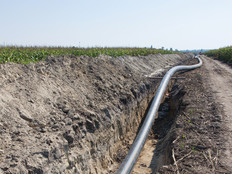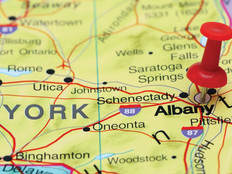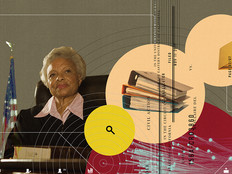Q&A: Lexington-Fayette Urban County CIO Aldona Valicenti Prepares for the Internet of Things
Broadband offers cities and counties a world of possibility, something Lexington-Fayette Urban County CIO Aldona Valicenti understands well.
Having served as Kentucky’s first CIO, Valicenti brings decades of IT leadership experience to a broad plan for preparing Lexington-Fayette Urban County for the game-changing Internet of Things.
Valicenti spoke with StateTech contributing editor David Stegon about the challenges inherent in the region’s ongoing efforts to expand broadband, the potential of smart cities and her plan to improve the county’s 311 system.
STATETECH: You’ve worked as a CIO for different types of organizations, from states and counties to large companies. What are the greatest differences in how IT is delivered?
VALICENTI: Each segment features different technical challenges because of the way they conduct business. In the private sector, speed is incredibly important. In government, the challenge is always the review process. You must always make sure the money is there, the process is sound and it gets approved through whatever legislative process is in place. You must document all of that and make it public, which adds significant time to each project.
STATETECH: One of your primary focal areas so far has been expanding broadband access countywide. What are the challenges in deploying broadband everywhere, not just to places where it isn’t difficult to install?
VALICENTI: As a combined city and county government, we must bring fiber to both a densely populated urban area and a more open rural area. In our request for proposal, we will ask that the service be ubiquitous. In some areas, companies come in and offer broadband, but will only build it in areas where enough people promise to purchase it. That’s not the setup we want.
We want broadband available to everyone in the county, along with our urban areas. Our consultants say no one else in the country has tried this, so we are pioneers in that respect. In the end, we want every home in our county to have access to broadband.
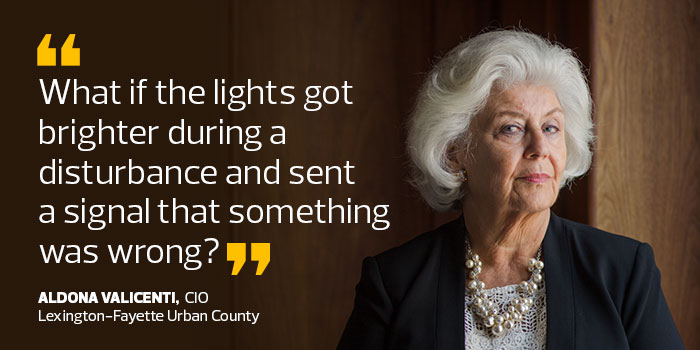
STATETECH: How does broadband help government and citizens?
VALICENTI: Fiber can greatly help to connect us. We created a map of all of our firehouses, police stations and government buildings, such as our health department. With them all connected, our public safety operations center can quickly access information from each one.
Let’s say a big fire happens in the city. With broadband, and each government building wired for the Internet of Things, sensors around town could notify the fire department immediately to send help faster. That kind of activity is not possible without broadband.
STATETECH: IoT connectivity sounds like a major by-product of the broadband deployment.
VALICENTI: We’ve started small. We deployed fiber to some traffic lights to figure out how to send signals faster, but that is just the beginning.
We have yet to identify the specific projects we want to tackle, but we are looking at all the possibilities. Take schools: What can we do in the school system with the IoT? The same opportunity exists with the county’s police force. We have a small team, facilitated by Scott Shapiro from the mayor’s office, who work to come up with ideas, and they’ve already come up with some good ones. Streetlights show great promise. What if the lights got brighter during a disturbance and sent a signal to the police station that something was wrong? While we don’t know exactly how we want to use the IoT, we see a world of potential.
STATETECH: Lexington features one of the oldest 311 systems in the country, dating back about 20 years. Tell us what you’ve done to improve it.
VALICENTI: I moved to Lexington in 1998, and the county already had a 311 system, something many areas had not yet created. Operators took a call and then sent an email or called the appropriate department. The system was incredibly human-based. Last year, we created a 311 app that citizens use to communicate with City Hall to get potholes filled or streetlights fixed. The new system aims to enhance the citizen experience.
Our new system features much more automation. A lot of the processes did not need a person involved, so our new system will automatically send an email to the right department. That should help improve how quickly projects get completed and citizens see service.
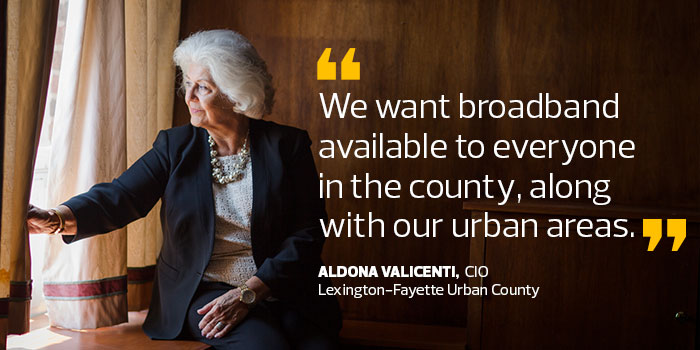
STATETECH: How else have you used technology to improve life for your citizens?
VALICENTI: One area is actually around leaves. Part of Lexington features a huge tree canopy. Naturally, the leaves get into storm water and can clog our water system. City workers pick up the leaves, making us one of the few cities that still does that.
For the longest time, citizens never knew when the leaves would be collected. Once we got the right data, we put that information on an app on the website. Now, if you put in your street address during leaf pickup season, you will learn when city workers are coming to clean your street. It’s a small thing, but it makes a difference for our citizens, and that’s what’s important.
STATETECH: What projects are holding your focus right now?
VALICENTI: We continue to make small investments in infrastructure. We just bought new switches and continue to invest in cybersecurity, both hardware and software, but training as well.
We also want to refresh our desktops, moving away from a purchase to a lease environment. We don’t want to fall into the trap of having money one year for infrastructure improvement and not the next year. I want to build these costs into an operating expense so our desktop technology always remains fresh.
STATETECH: How are you working with open data?
VALICENTI: We have an open-data portal that we will continue to enhance. It’s pretty basic right now, and some of our departments are reluctant to put information on it. I want to put information about all the major purchases we made last year on there. That way citizens can see what we purchase and how much it costs.







